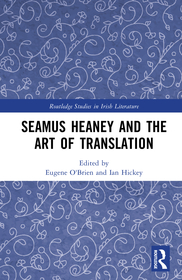
Spectrality in Modernist Fiction
- Publisher's listprice GBP 69.00
-
32 964 Ft (31 395 Ft + 5% VAT)
The price is estimated because at the time of ordering we do not know what conversion rates will apply to HUF / product currency when the book arrives. In case HUF is weaker, the price increases slightly, in case HUF is stronger, the price goes lower slightly.
- Discount 10% (cc. 3 296 Ft off)
- Discounted price 29 668 Ft (28 256 Ft + 5% VAT)
Subcribe now and take benefit of a favourable price.
Subscribe
32 964 Ft

Availability
Estimated delivery time: In stock at the publisher, but not at Prospero's office. Delivery time approx. 3-5 weeks.
Not in stock at Prospero.
Why don't you give exact delivery time?
Delivery time is estimated on our previous experiences. We give estimations only, because we order from outside Hungary, and the delivery time mainly depends on how quickly the publisher supplies the book. Faster or slower deliveries both happen, but we do our best to supply as quickly as possible.
Product details:
- Publisher OUP Oxford
- Date of Publication 13 July 2023
- ISBN 9780192888358
- Binding Hardback
- No. of pages206 pages
- Size 240x160x16 mm
- Weight 444 g
- Language English 470
Categories
Short description:
Spectrality in Modernist Fiction argues that key modernist writers, chiefly Conrad, Forster, Butts, and Bowen, use spectral rhetoric to tackle problems of sex and sexuality, revolution, imperialism, capitalism, and desire all through complicated ethical engagements.
MoreLong description:
Spectrality in Modernist Fiction argues that key modernist writers, chiefly Conrad, Forster, Butts, and Bowen, use spectral rhetoric to tackle problems of sex and sexuality, revolution, imperialism, capitalism, and desire all through complicated ethical engagements. These engagements invariably come packaged in, and are shaped by, the language of spectrality. In its capacity to articulate a particular sort of relationship between the past, the present and the future, the spectral concerns the basic question of how to proceed, how to live with-maybe even address-ethical indeterminacy. Whether their spectral rhetoric traces the logics of capitalist possession (Conrad), queer "friendship" and paganized Christianity (Forster), regressive politics haunted by historical traumas (Butts), or the devious passages of perverse desire (Bowen), these writers locate something like hope in their ghosts. The ethical and political impasses they chart through their spectral rhetoric are not final, but temporary, and the drive to overcome them constitutes a tensile optimism.
MoreTable of Contents:
Introduction
A Man Possessed: Conrad's Spectral Ethics
"What Love Looks Like in Public": Ghosts, Friends, and Justice in Forster
Wrestling with Ghosts: Butts, History, and Ethics
Elizabeth Bowen's "Uncertain Gothic"
Works Cited


Taylor's Guide to Shrubs: How to Select and Grow More Than 500 Ornamental and Useful Shrubs for Privacy, Ground Covers, and Specimen Plantings -
8 090 HUF
7 443 HUF








